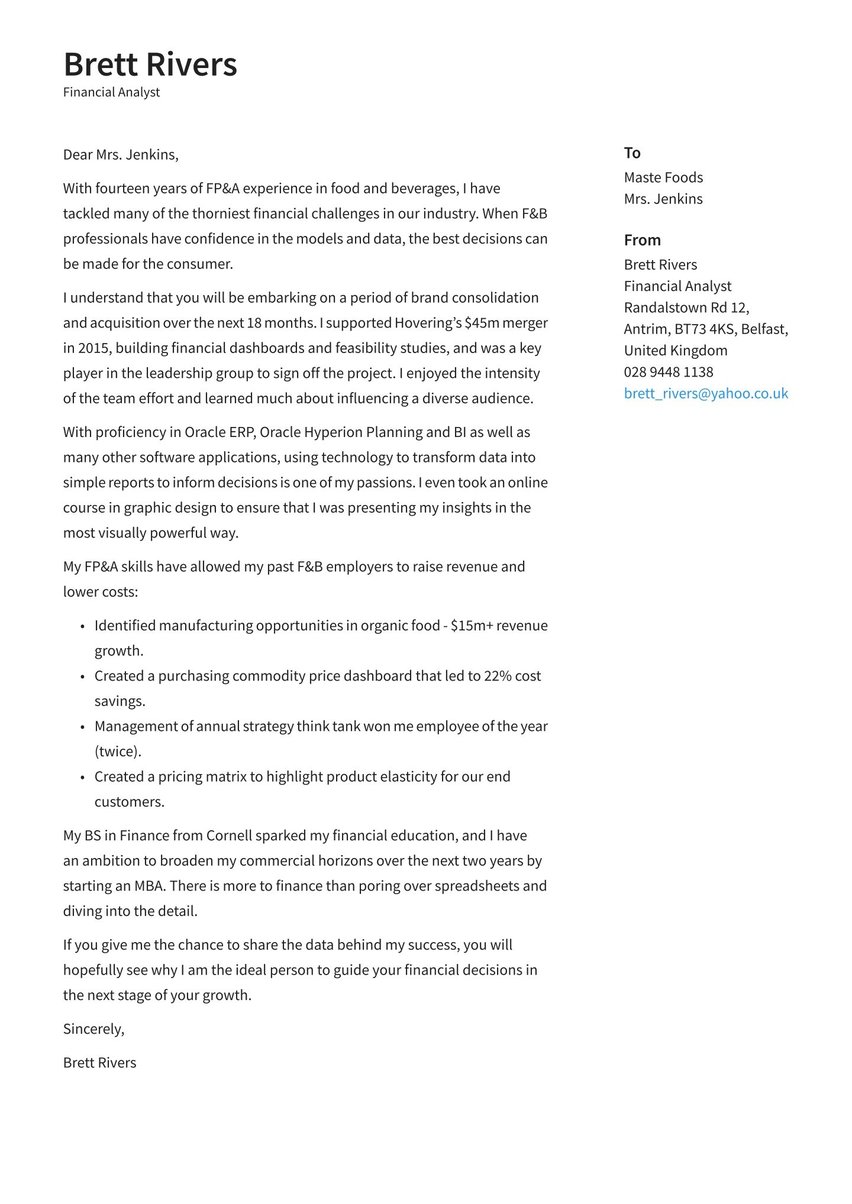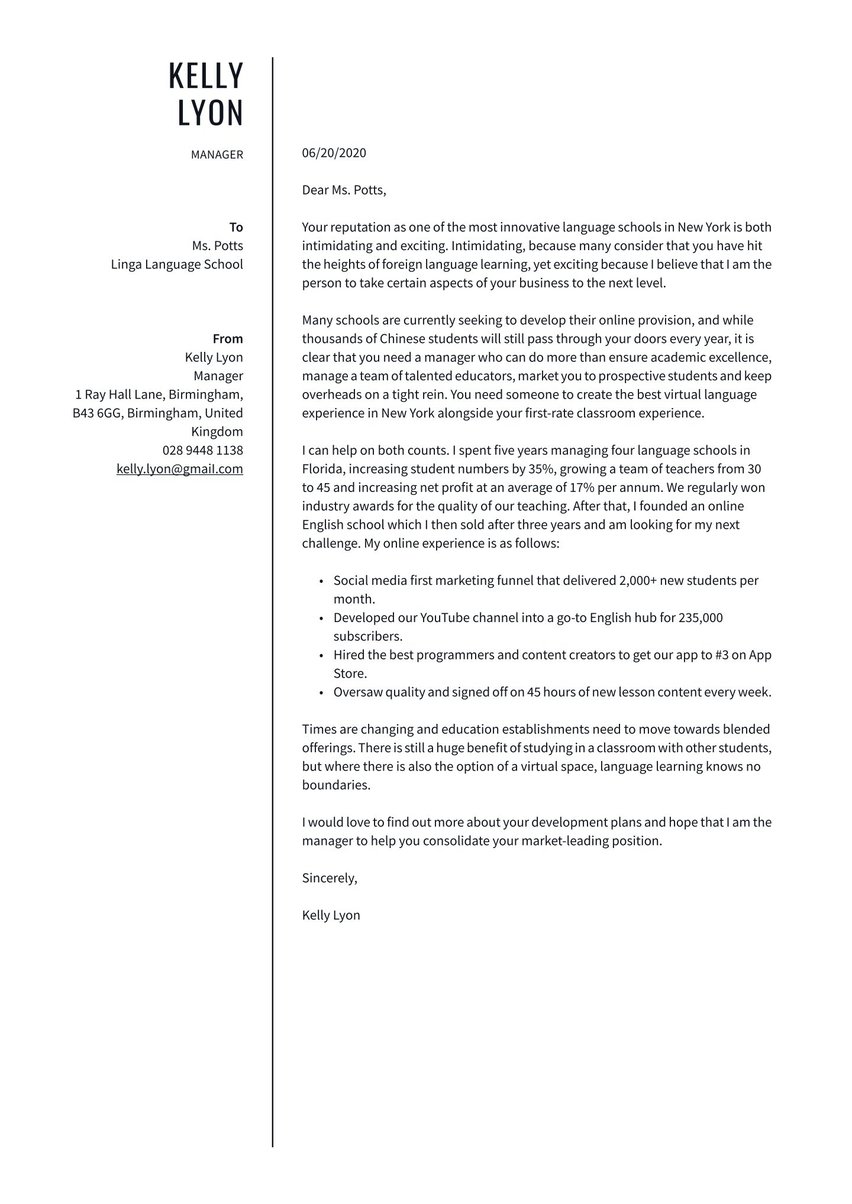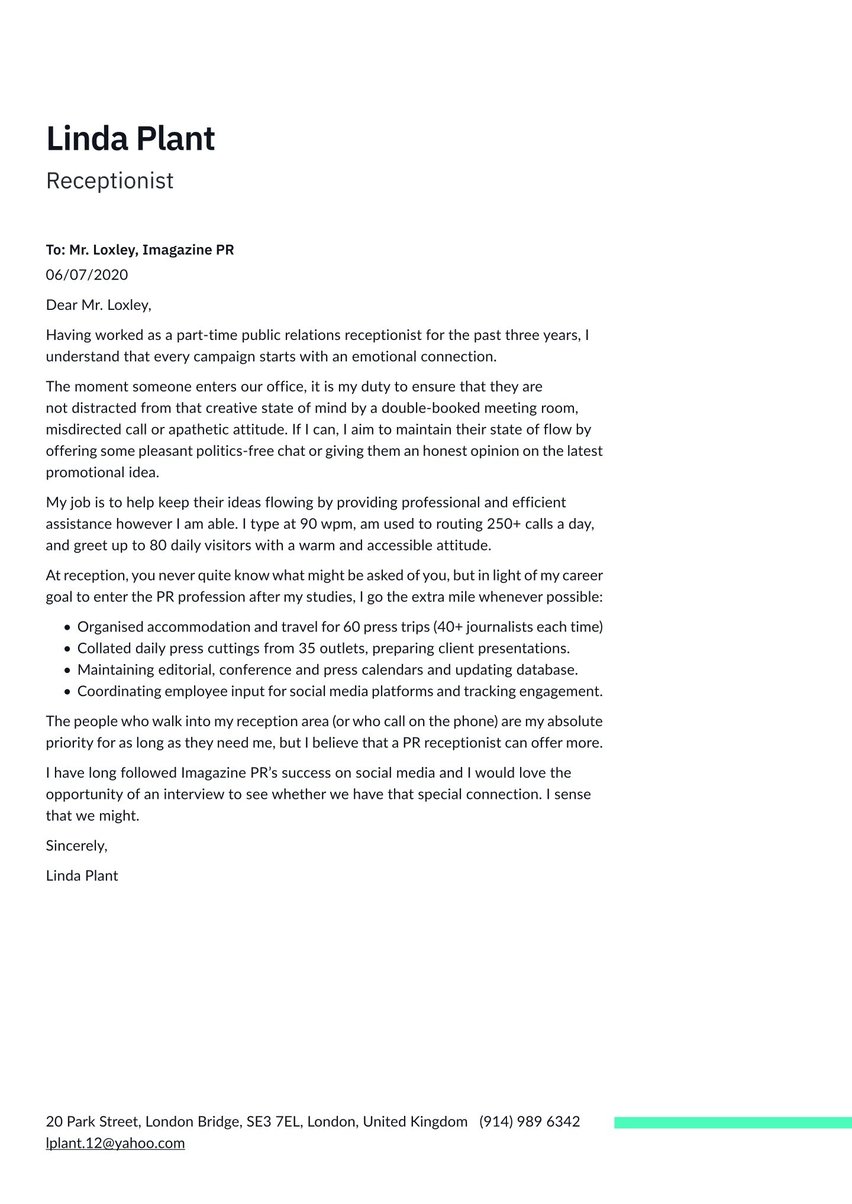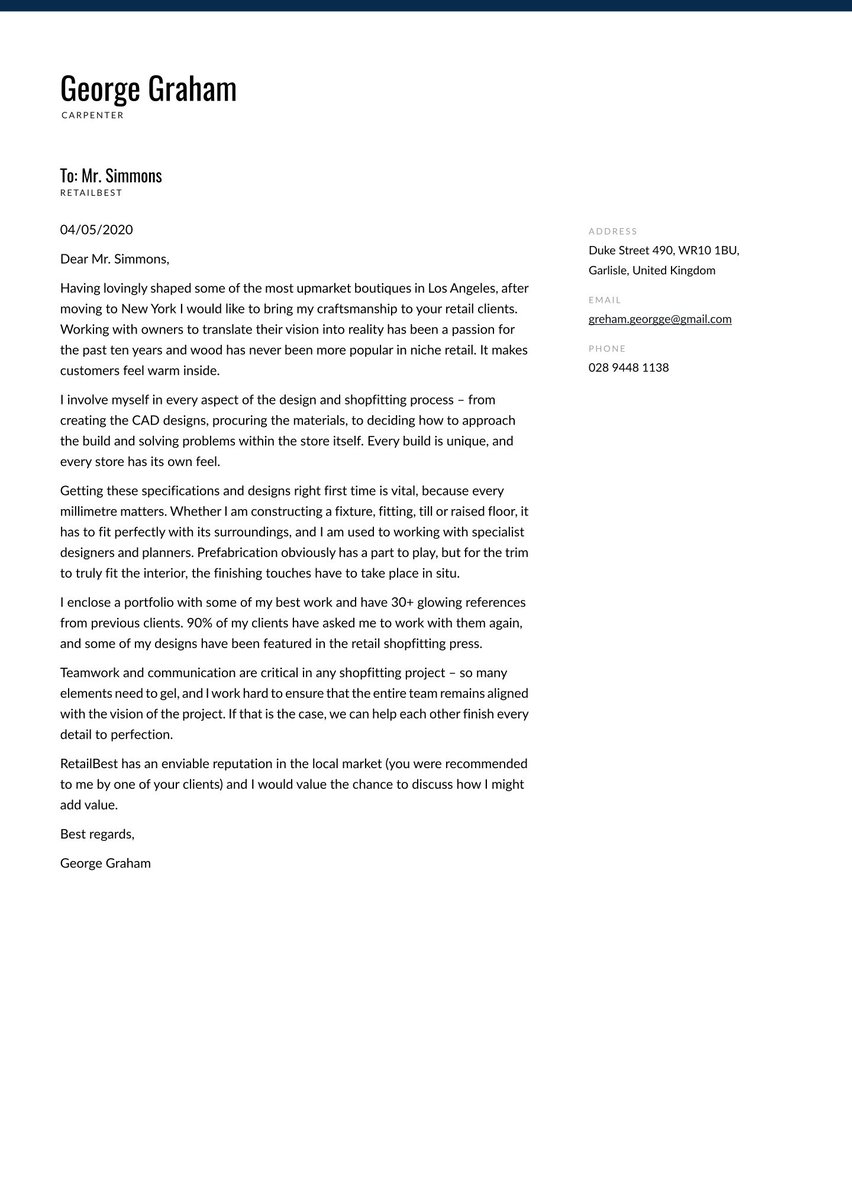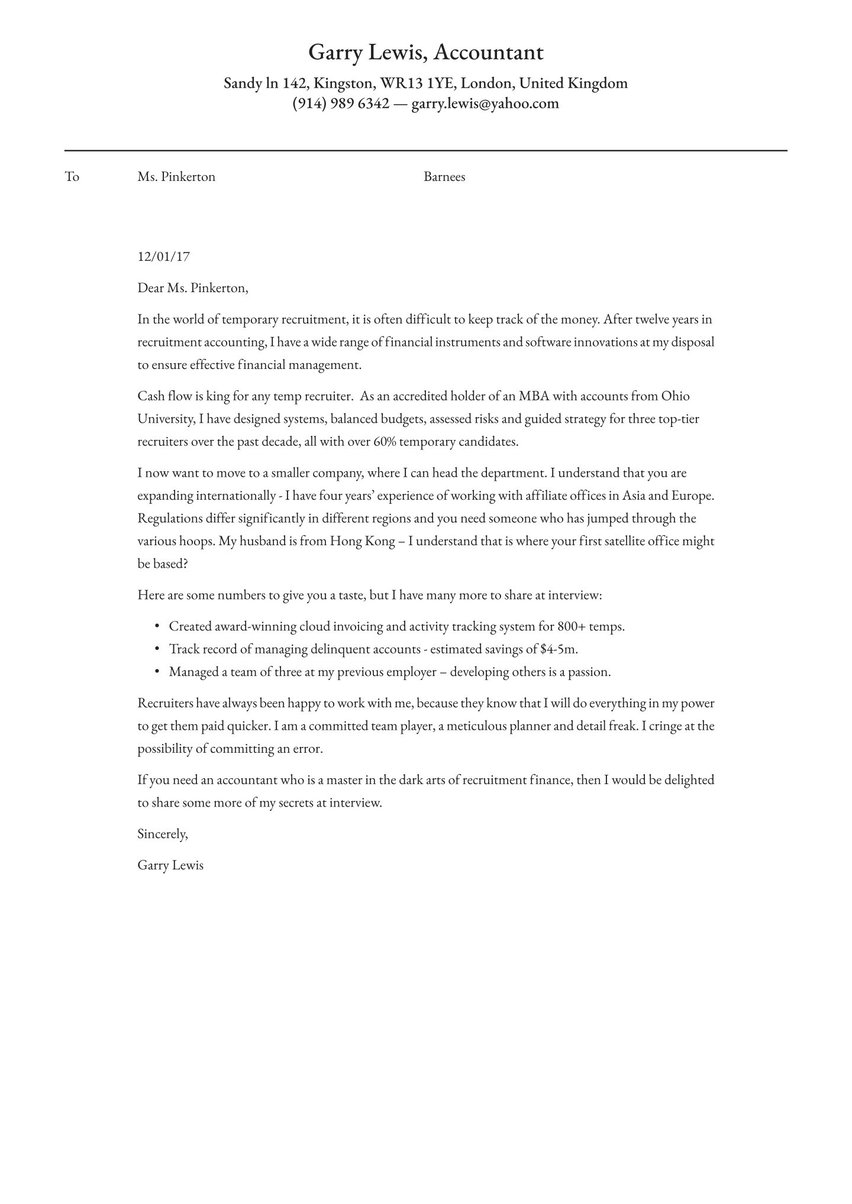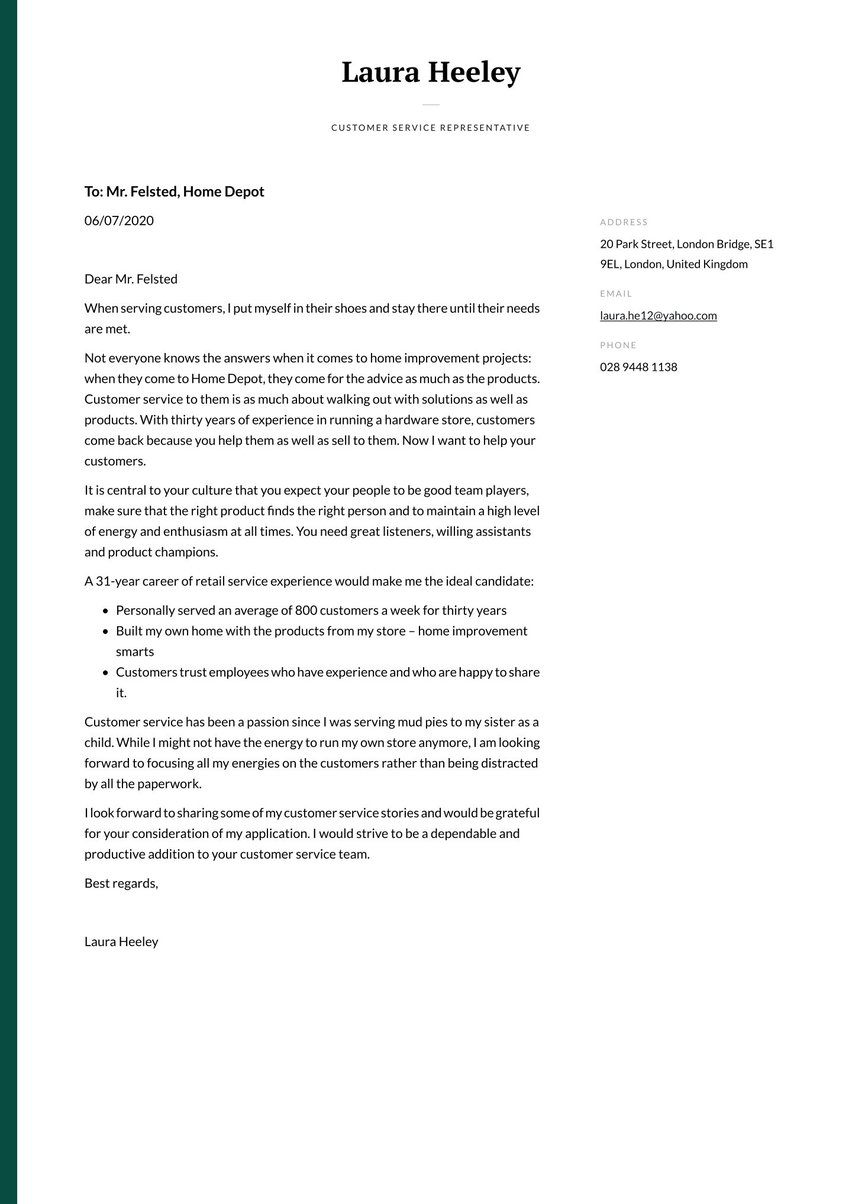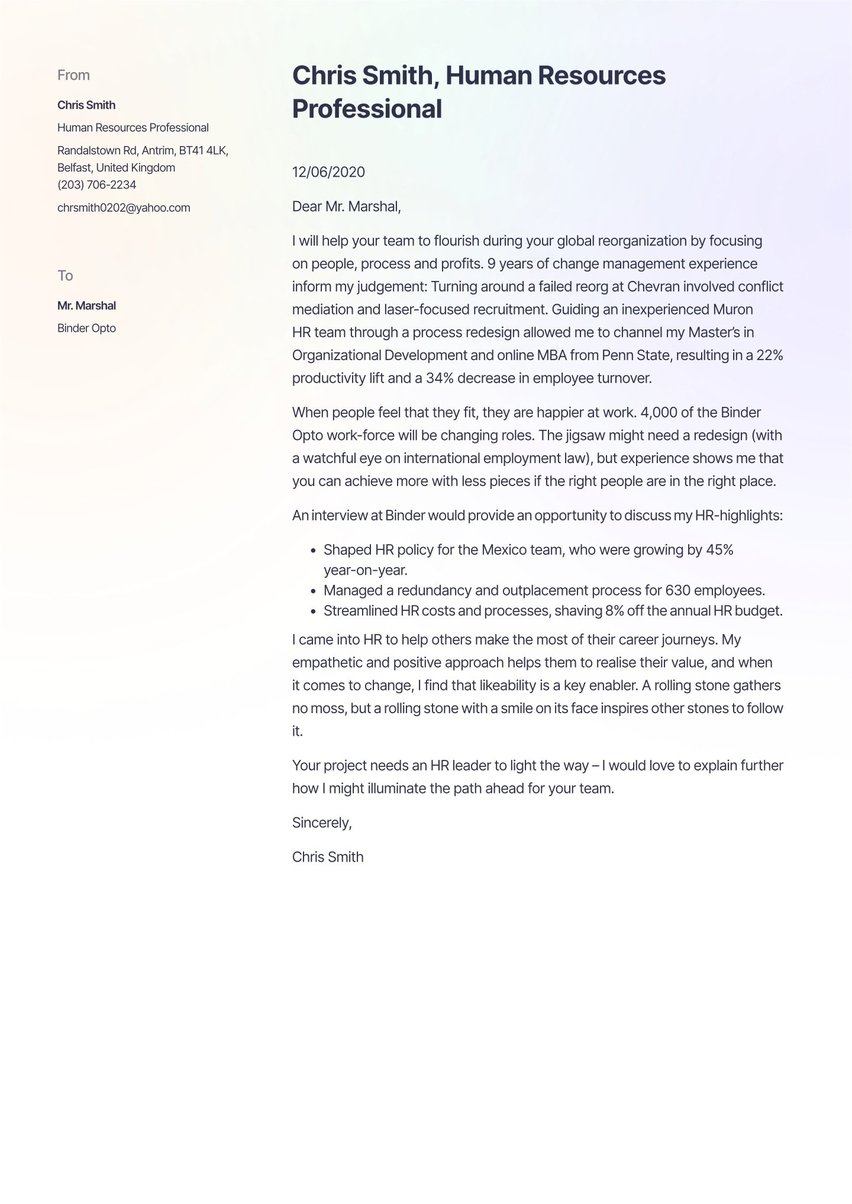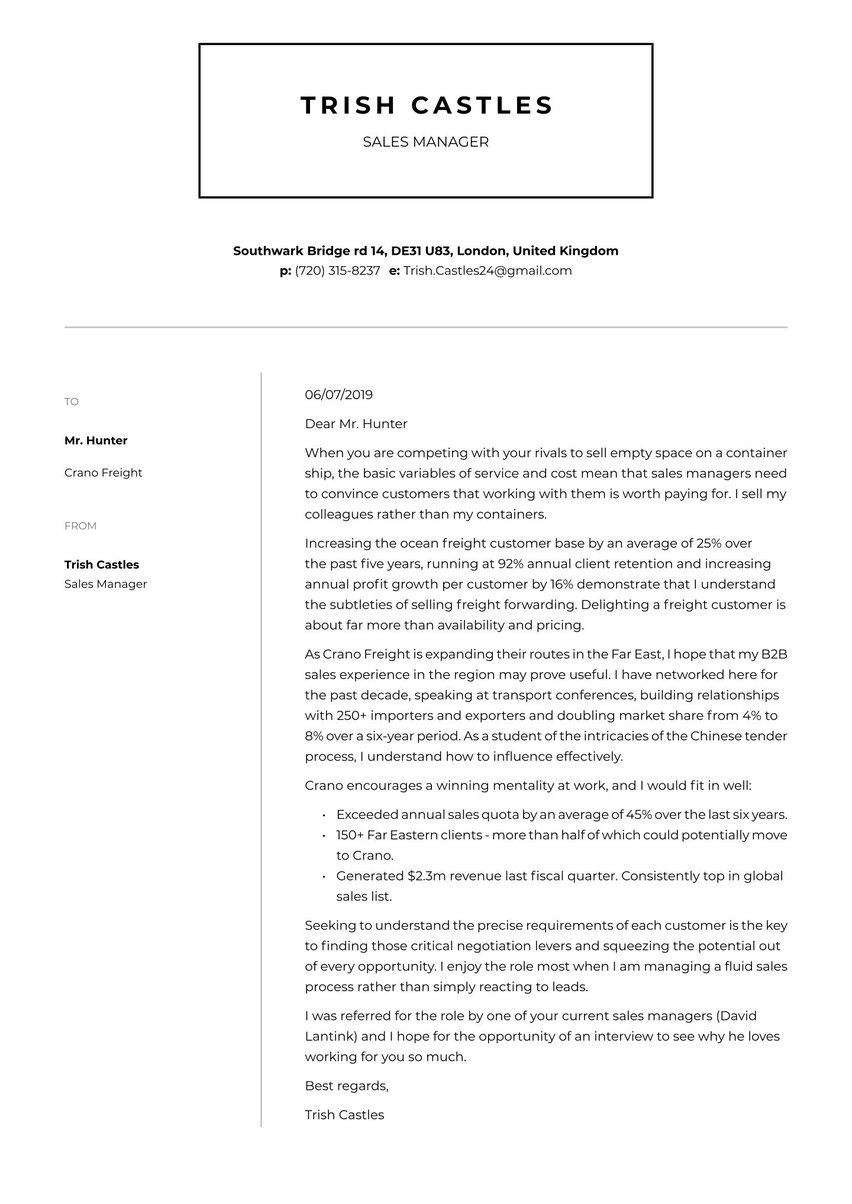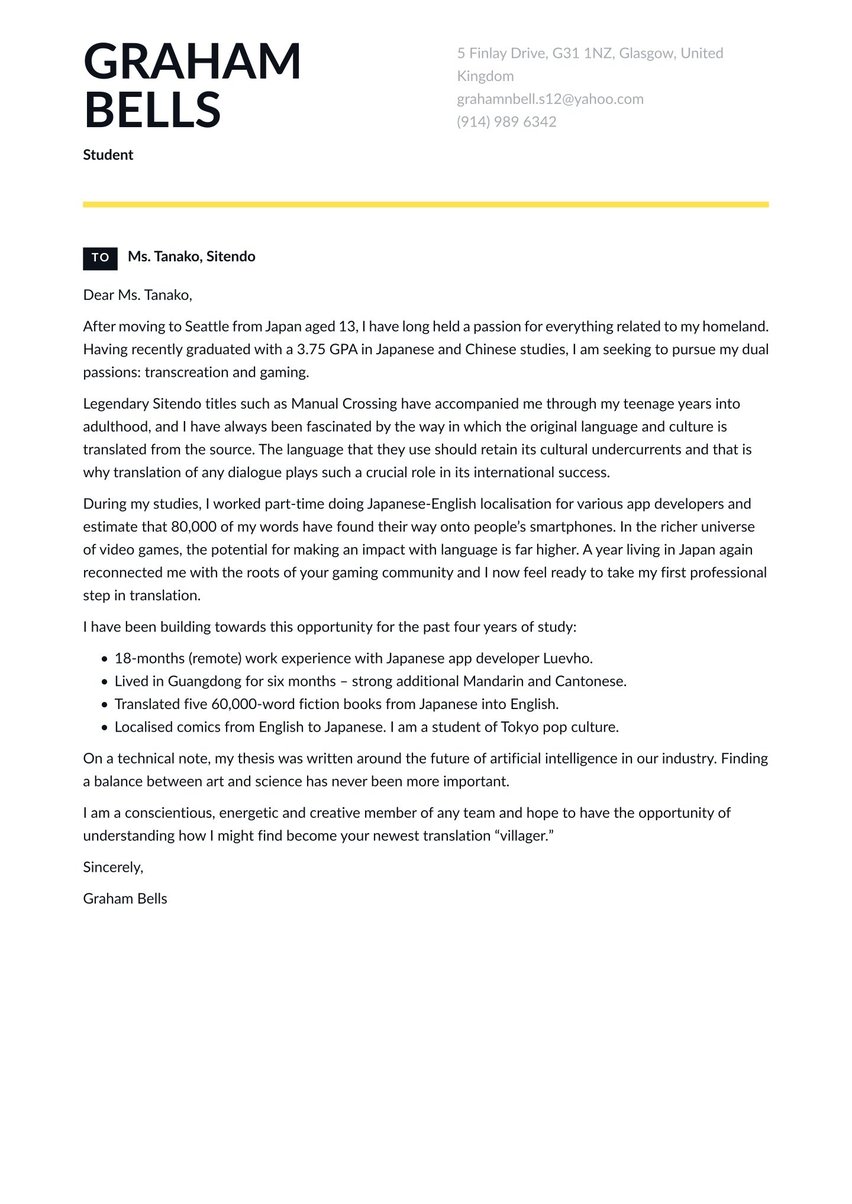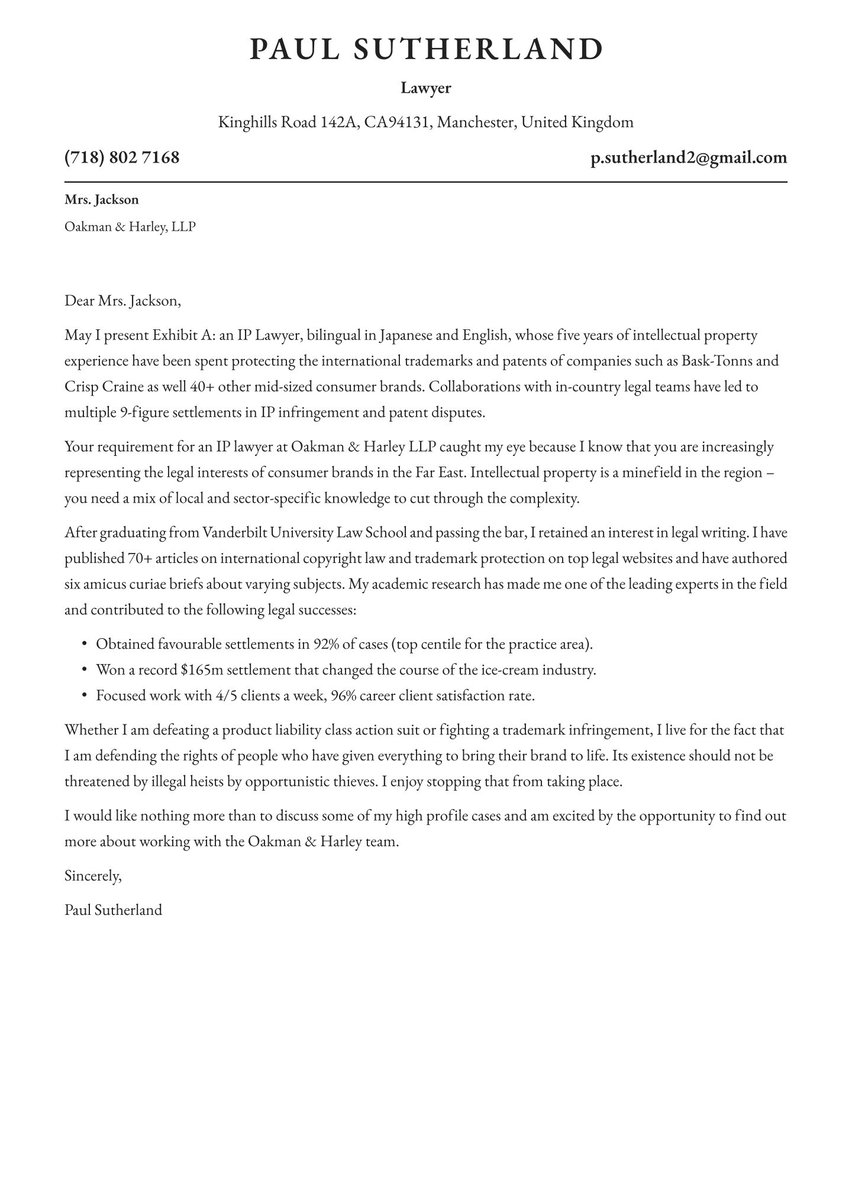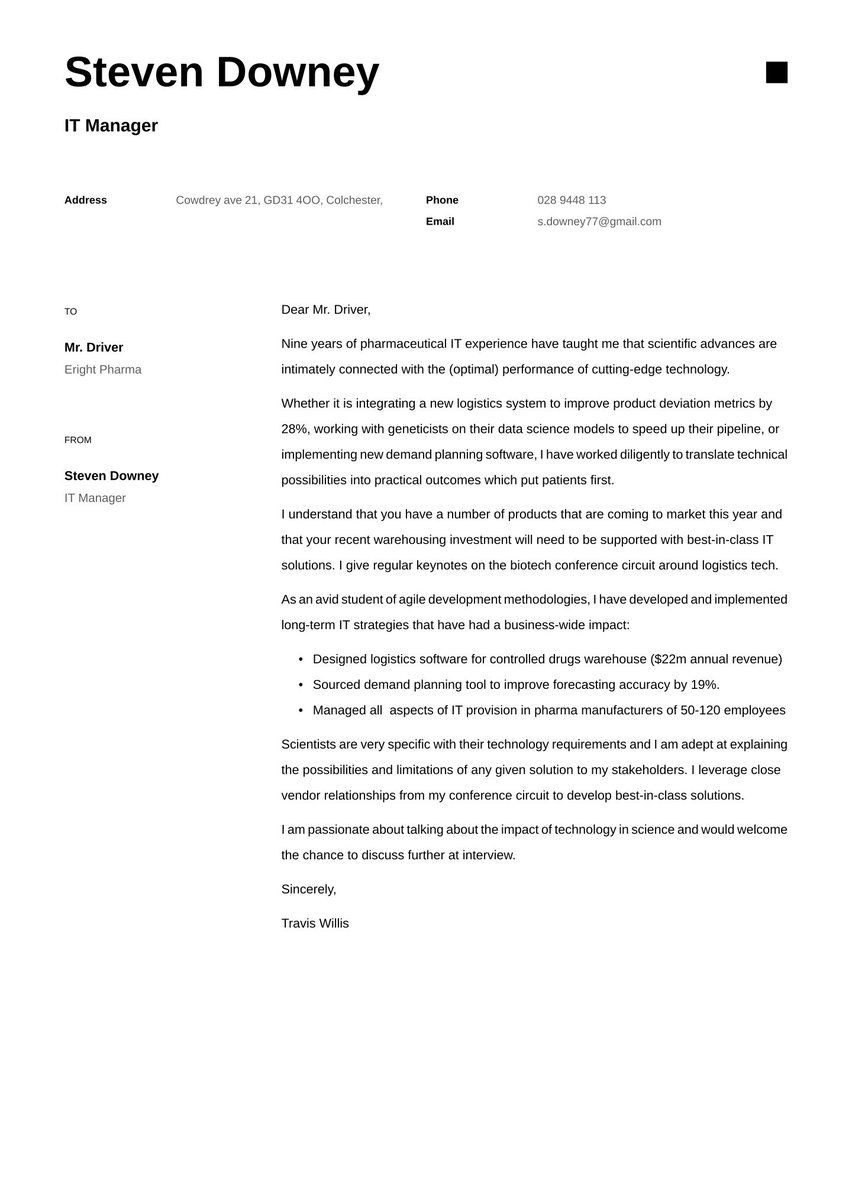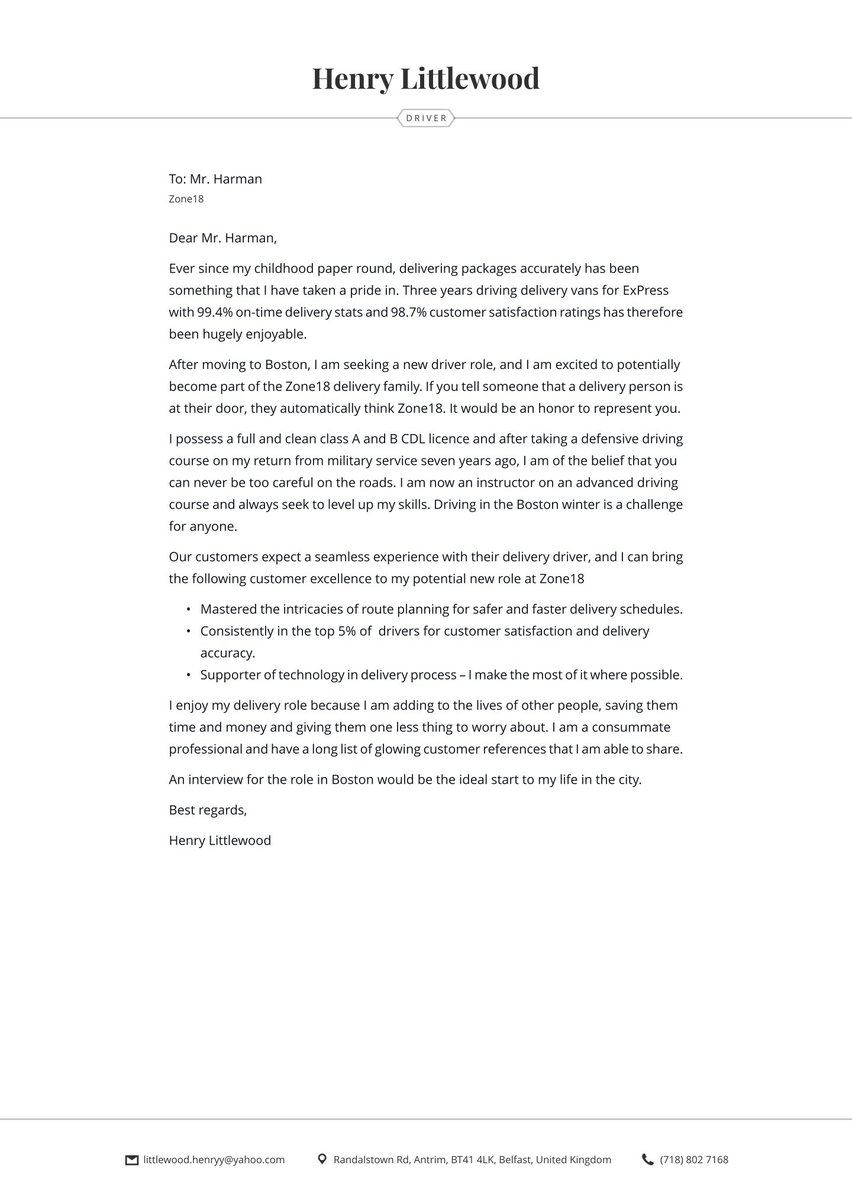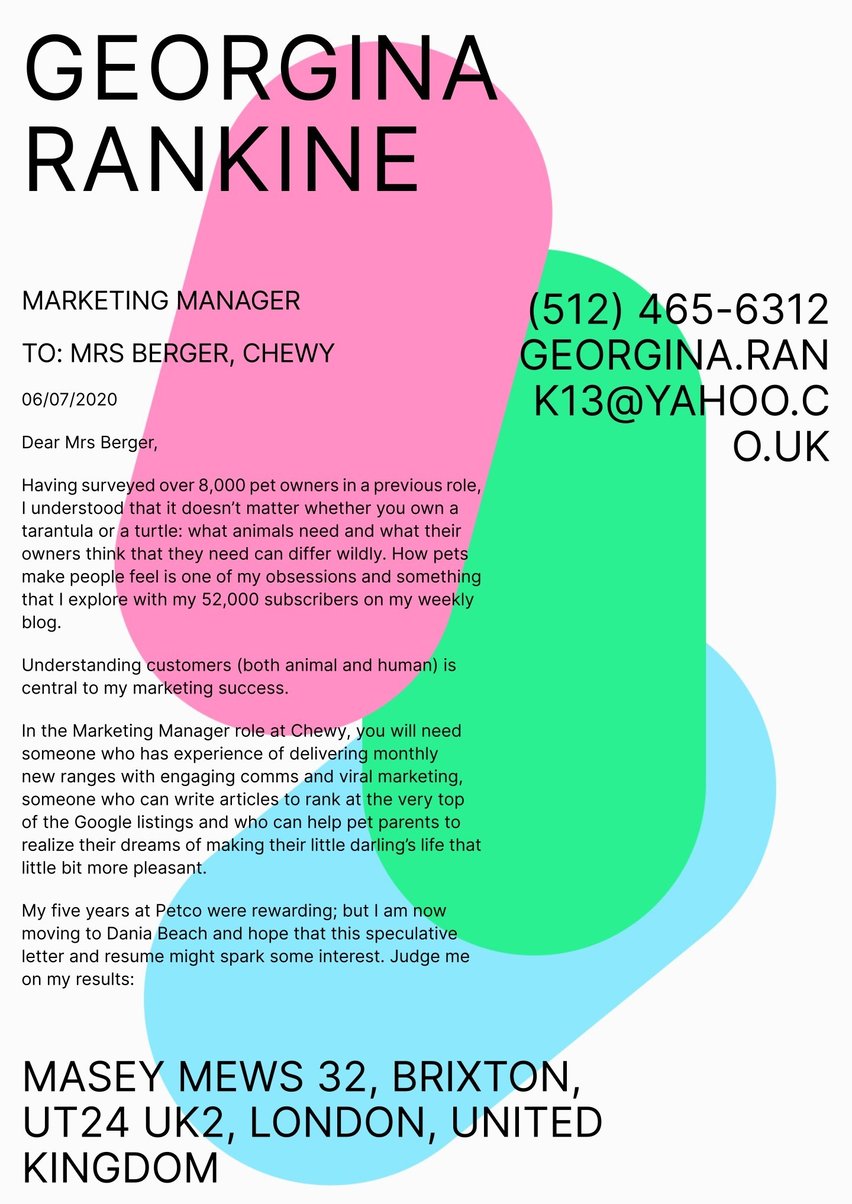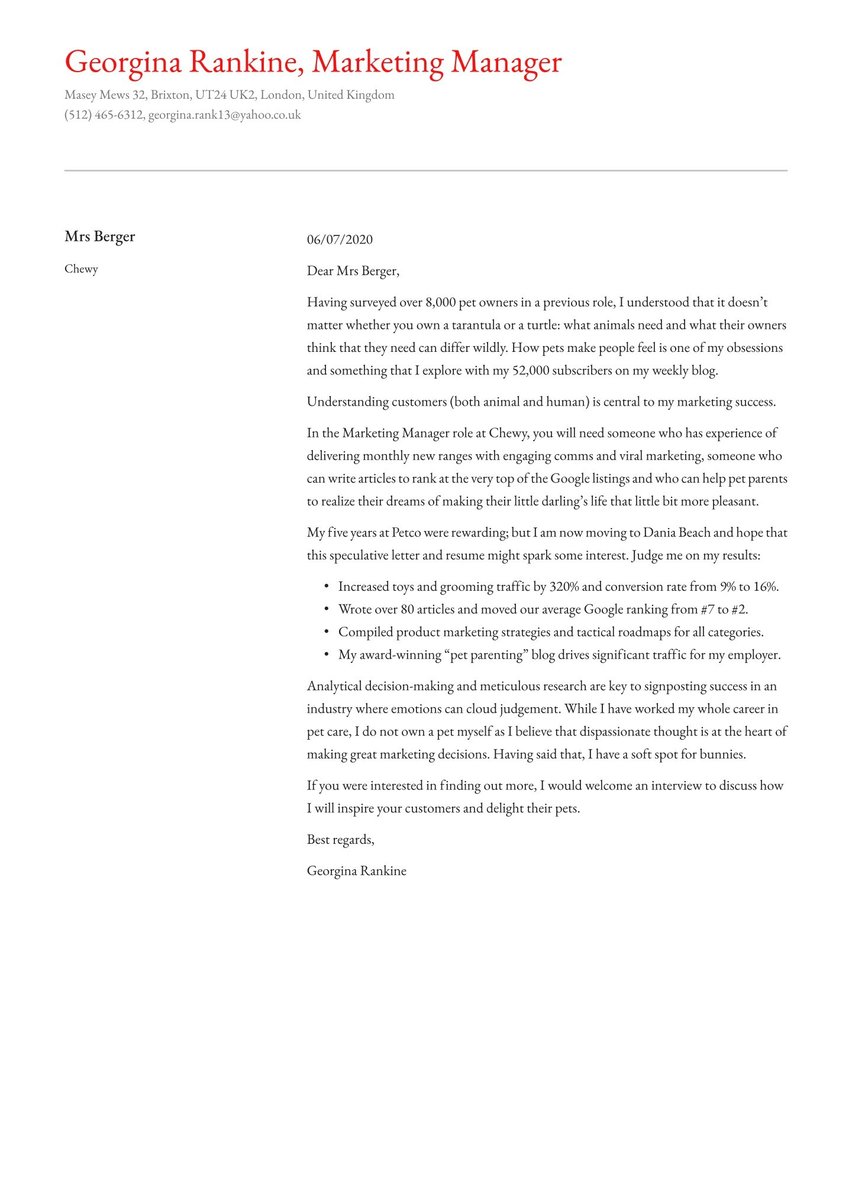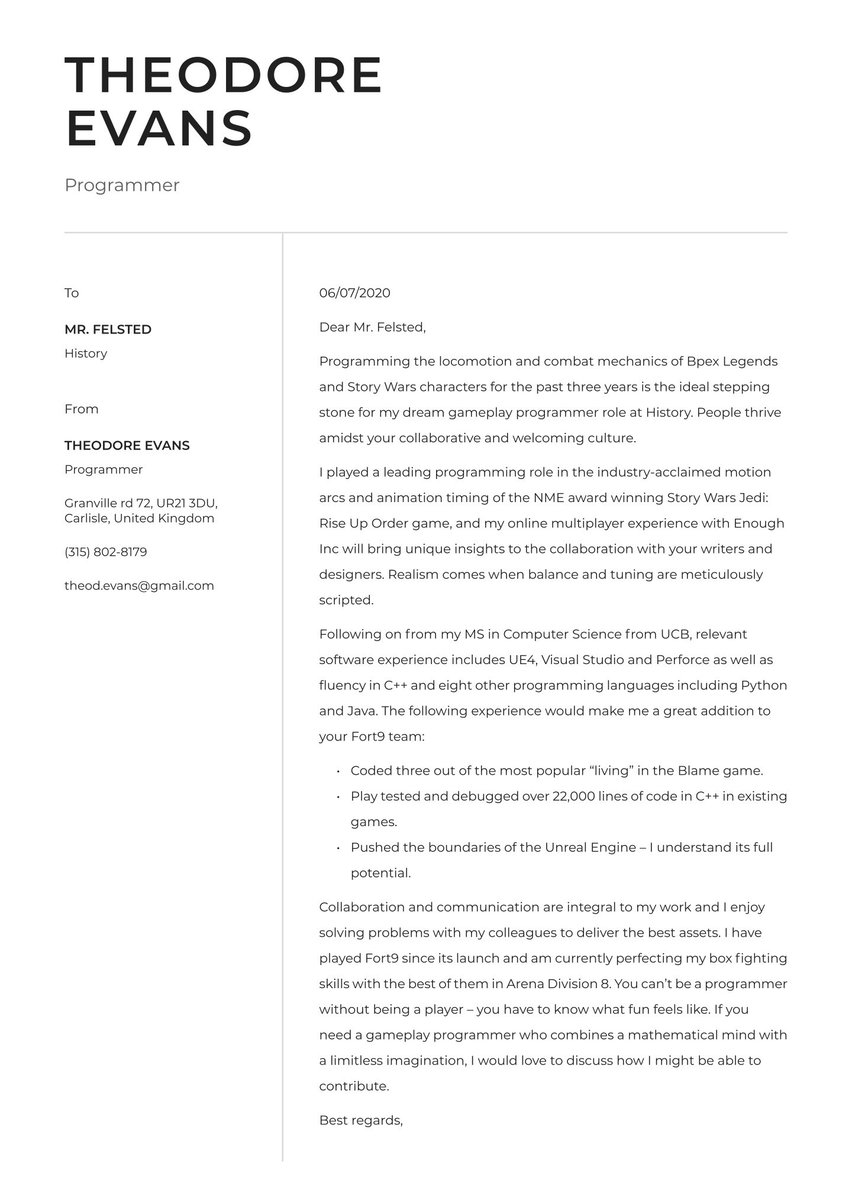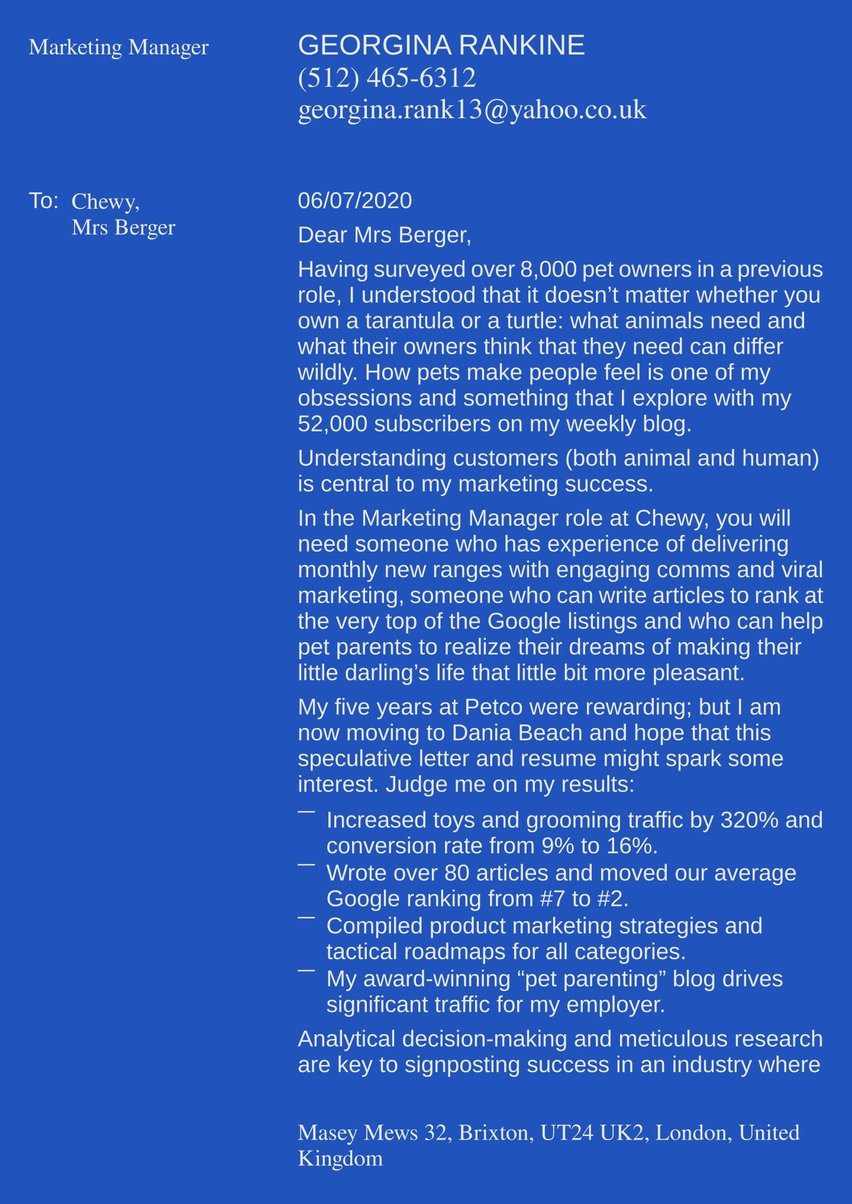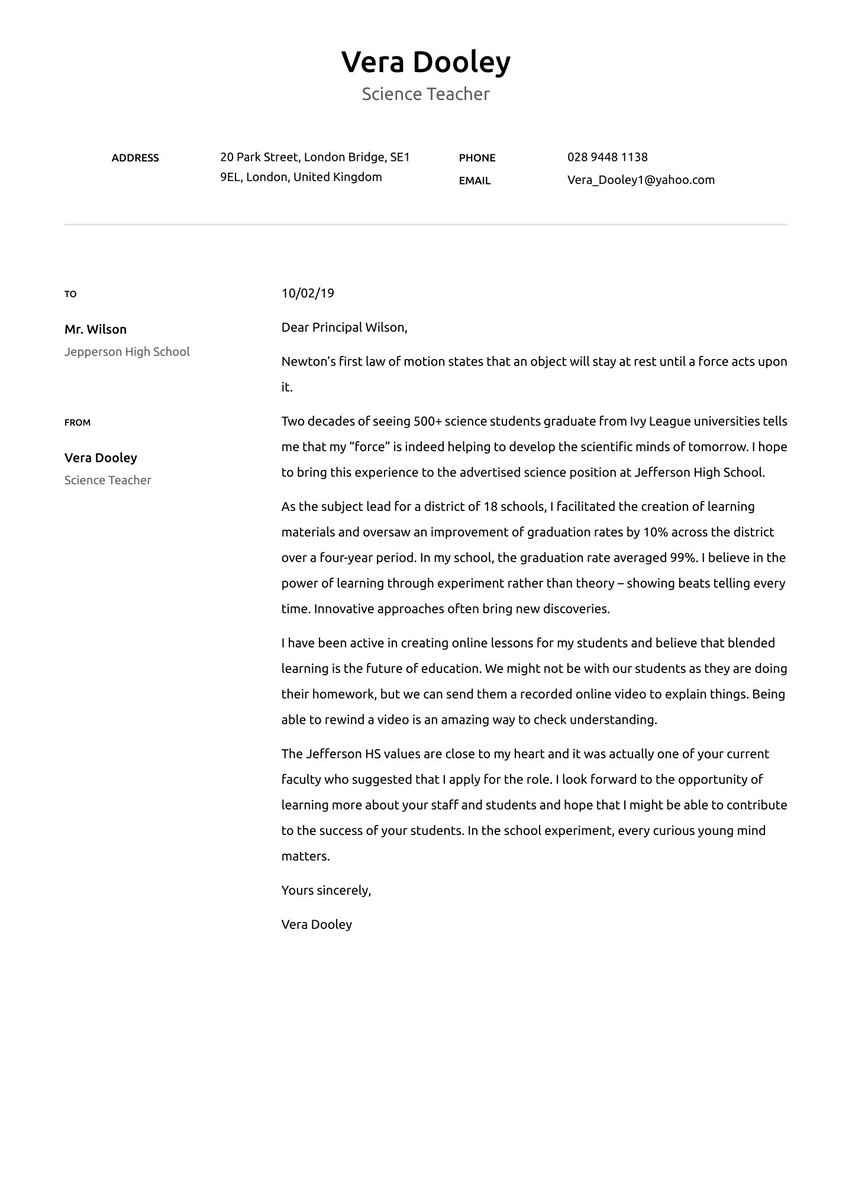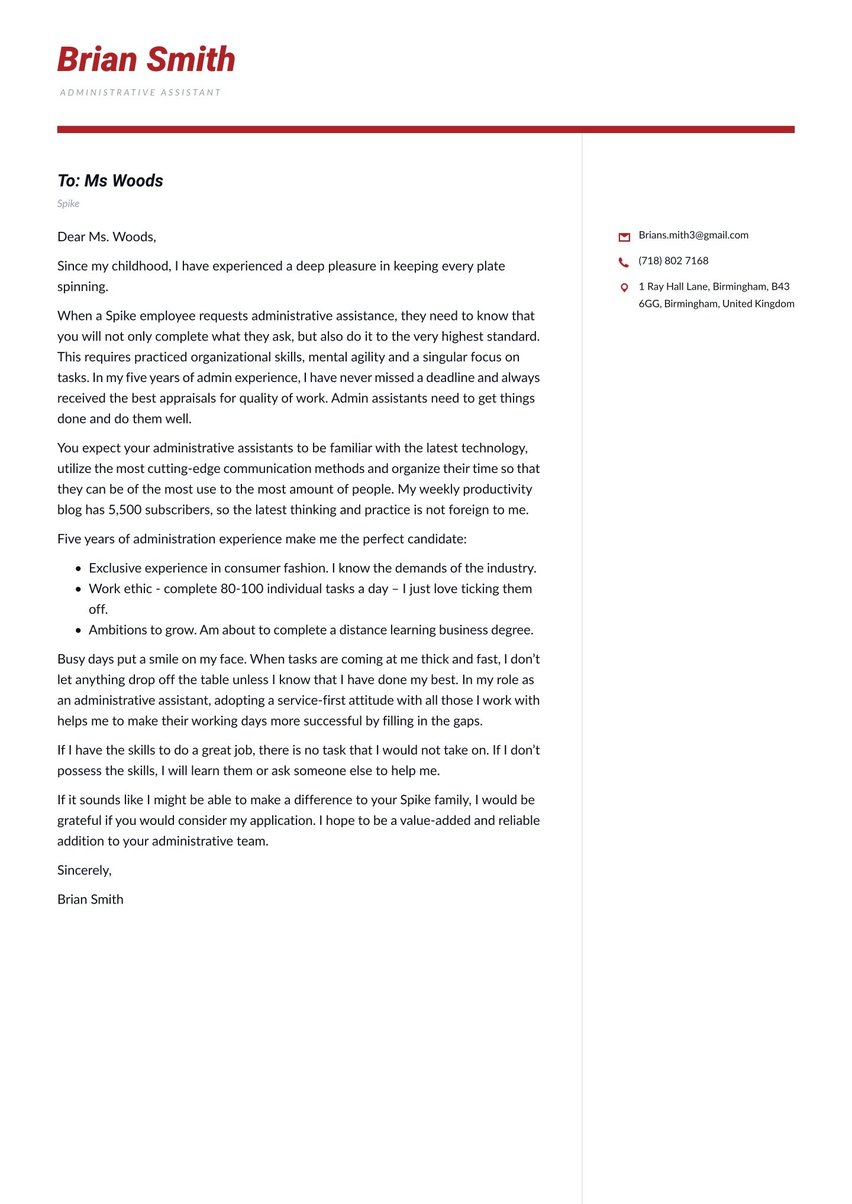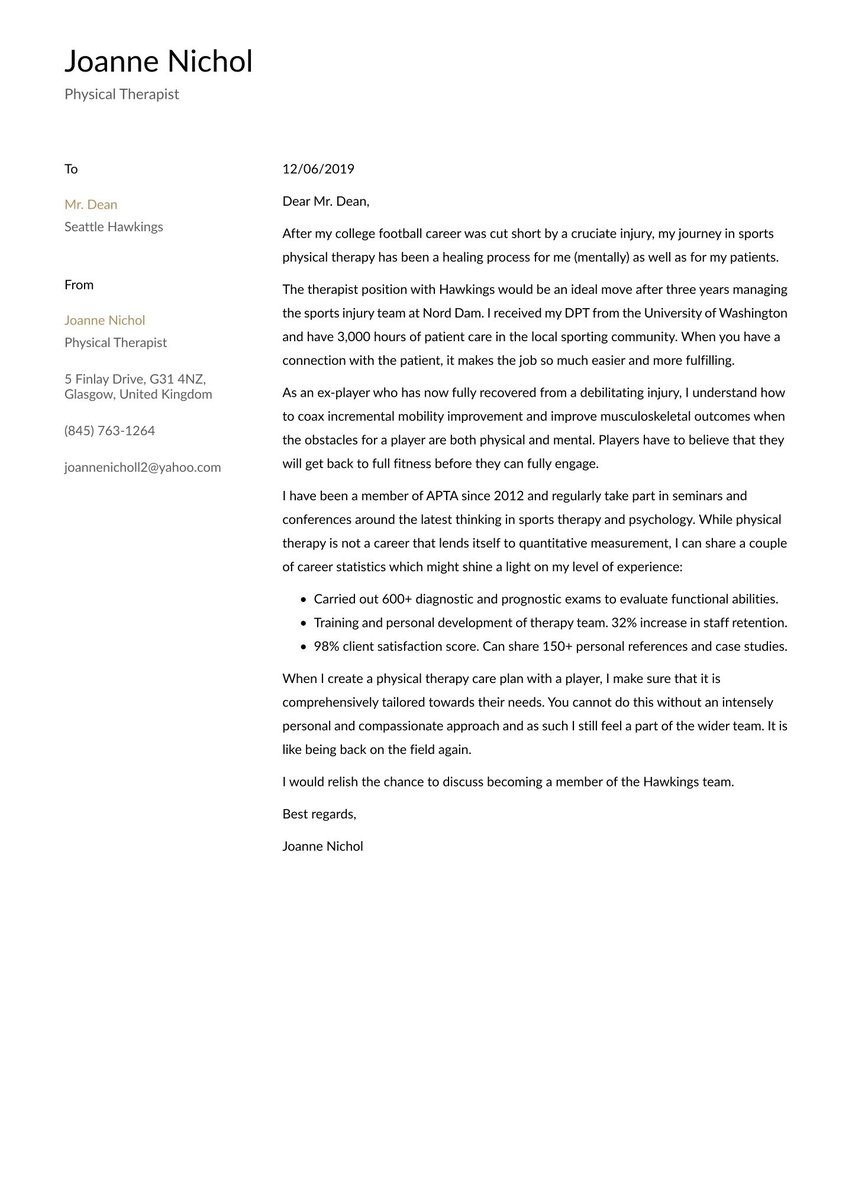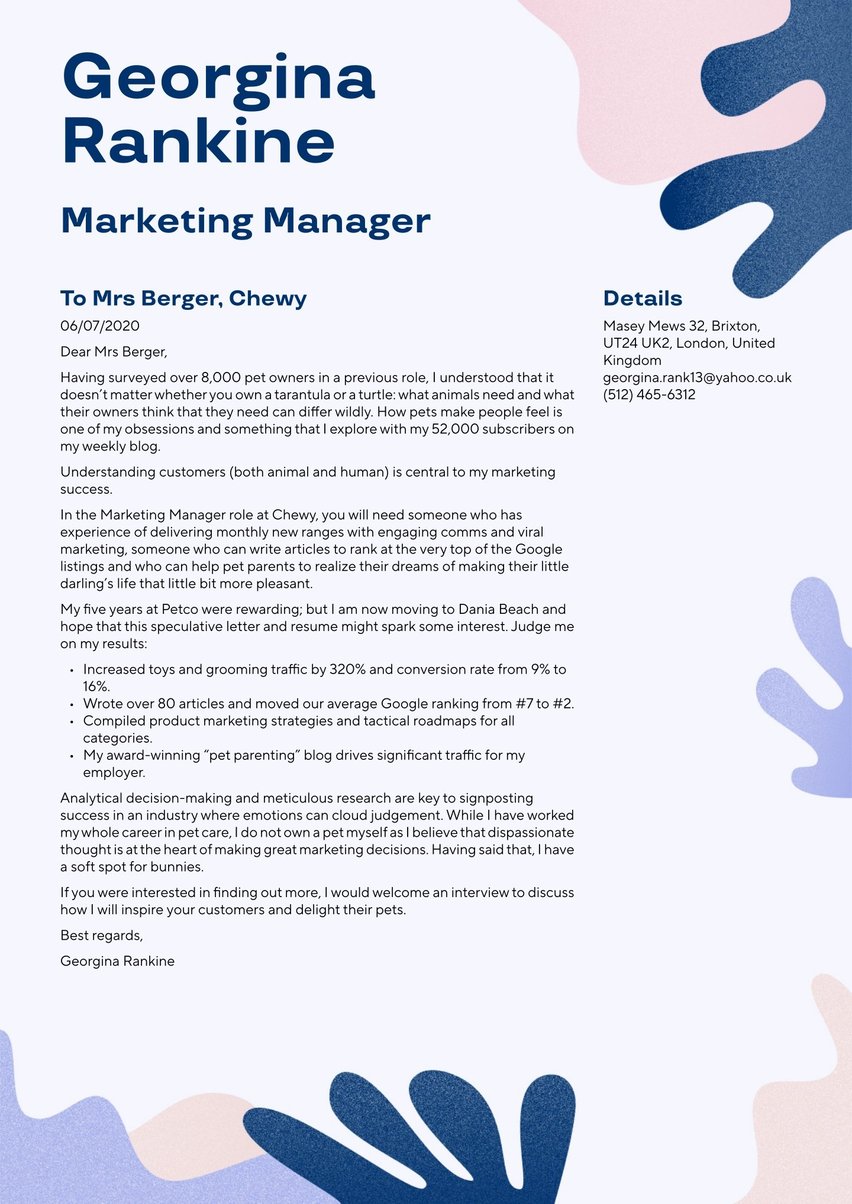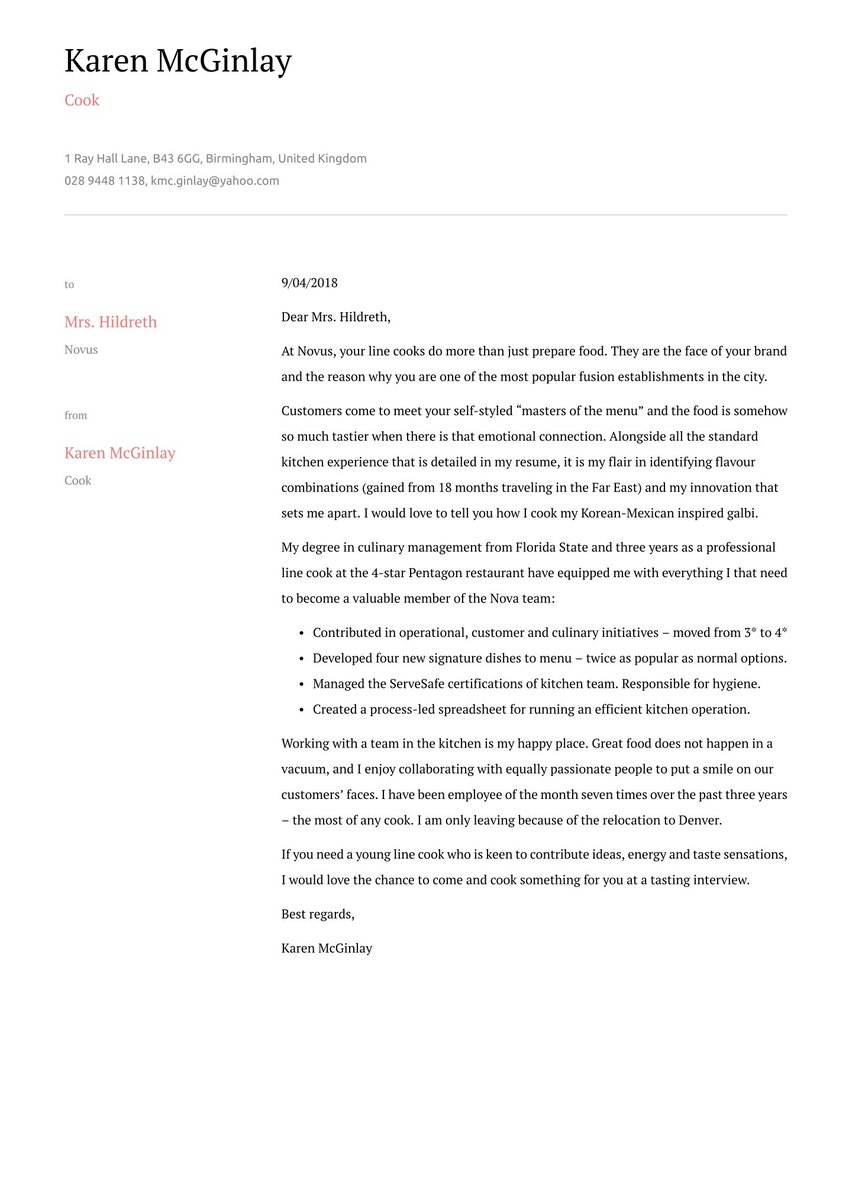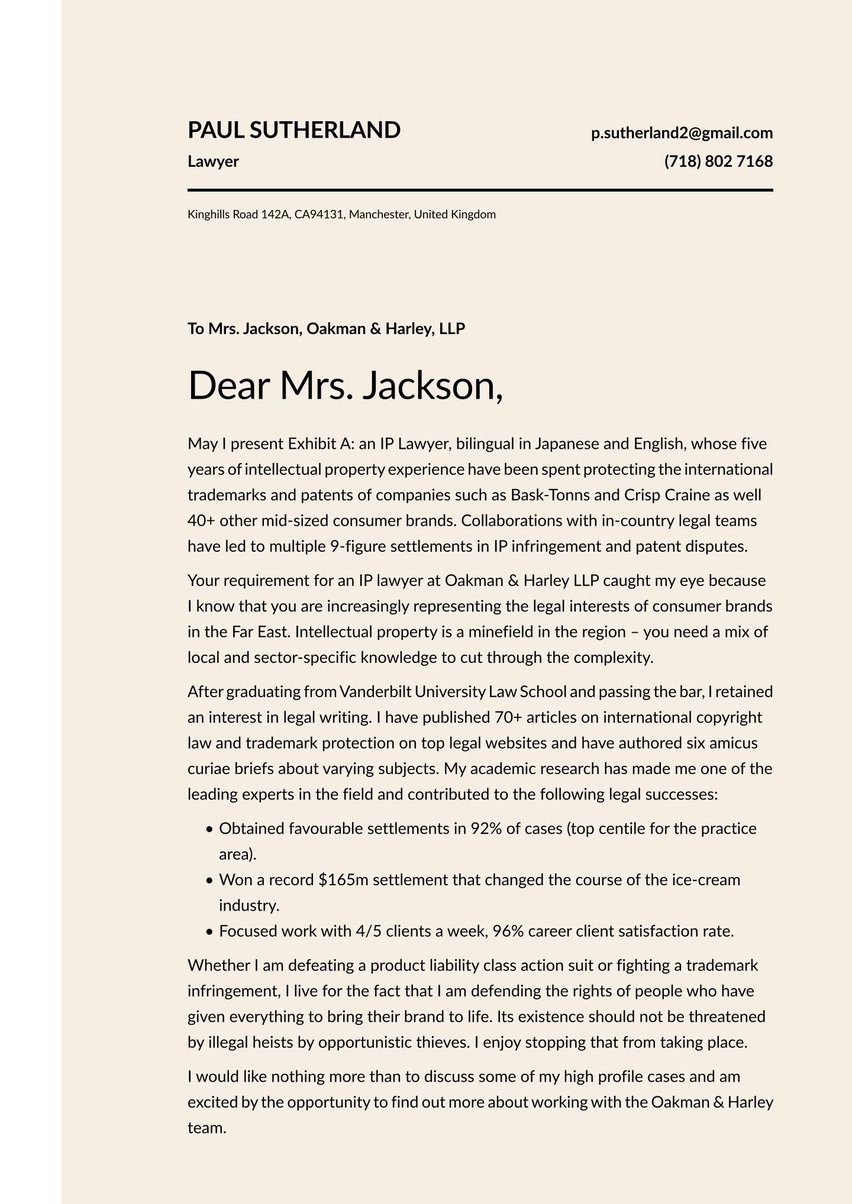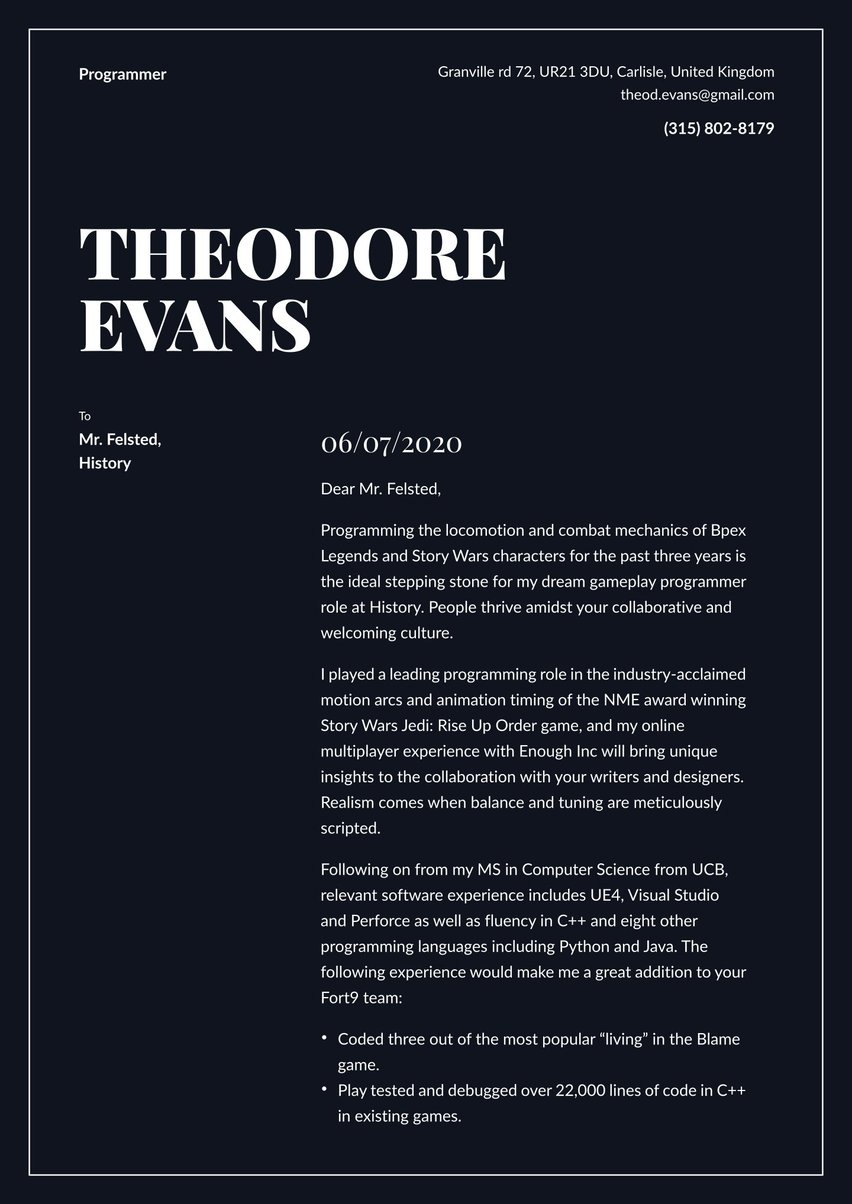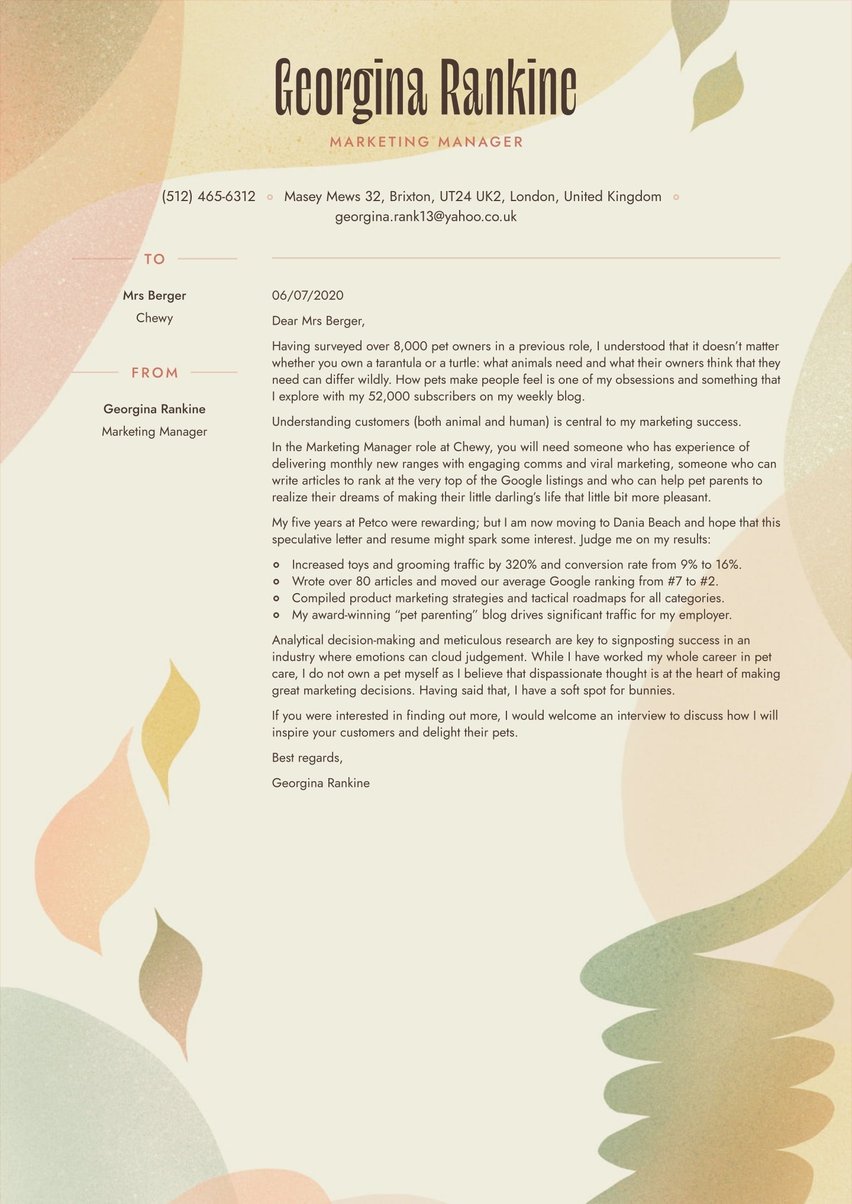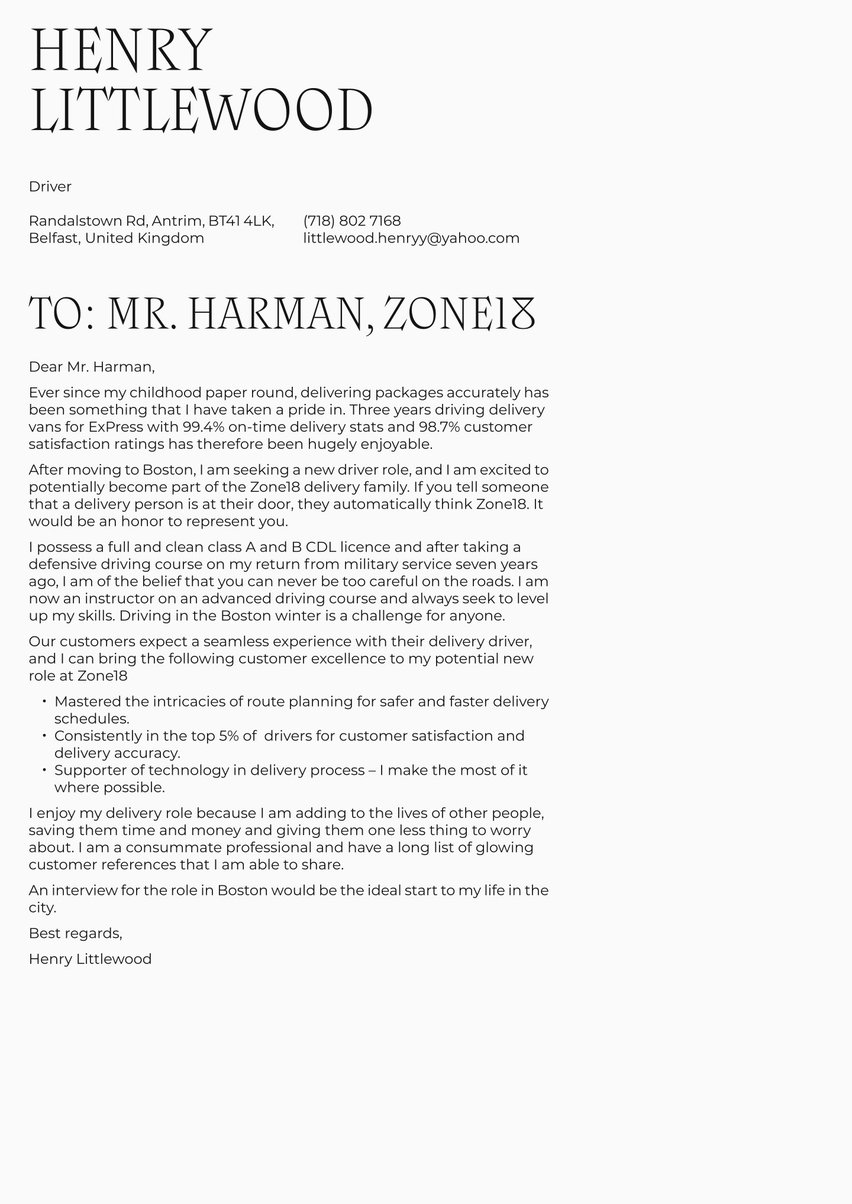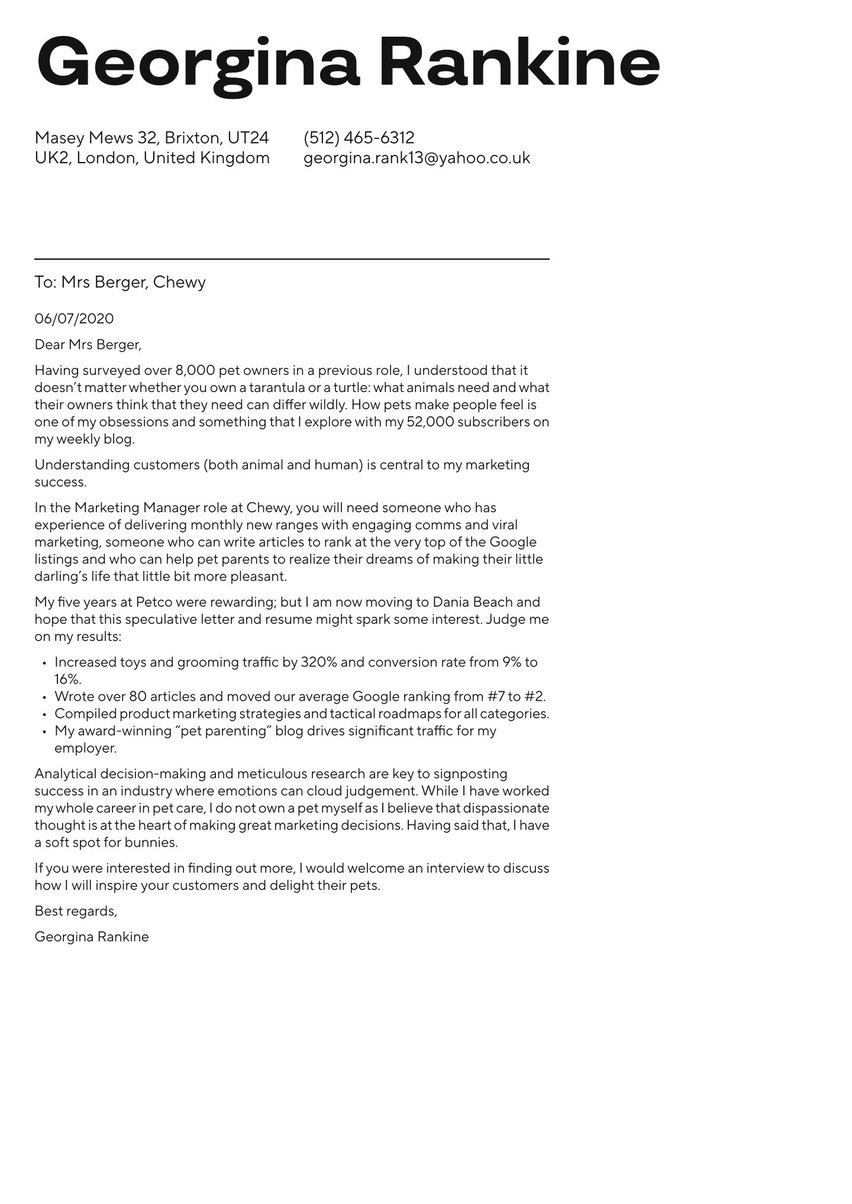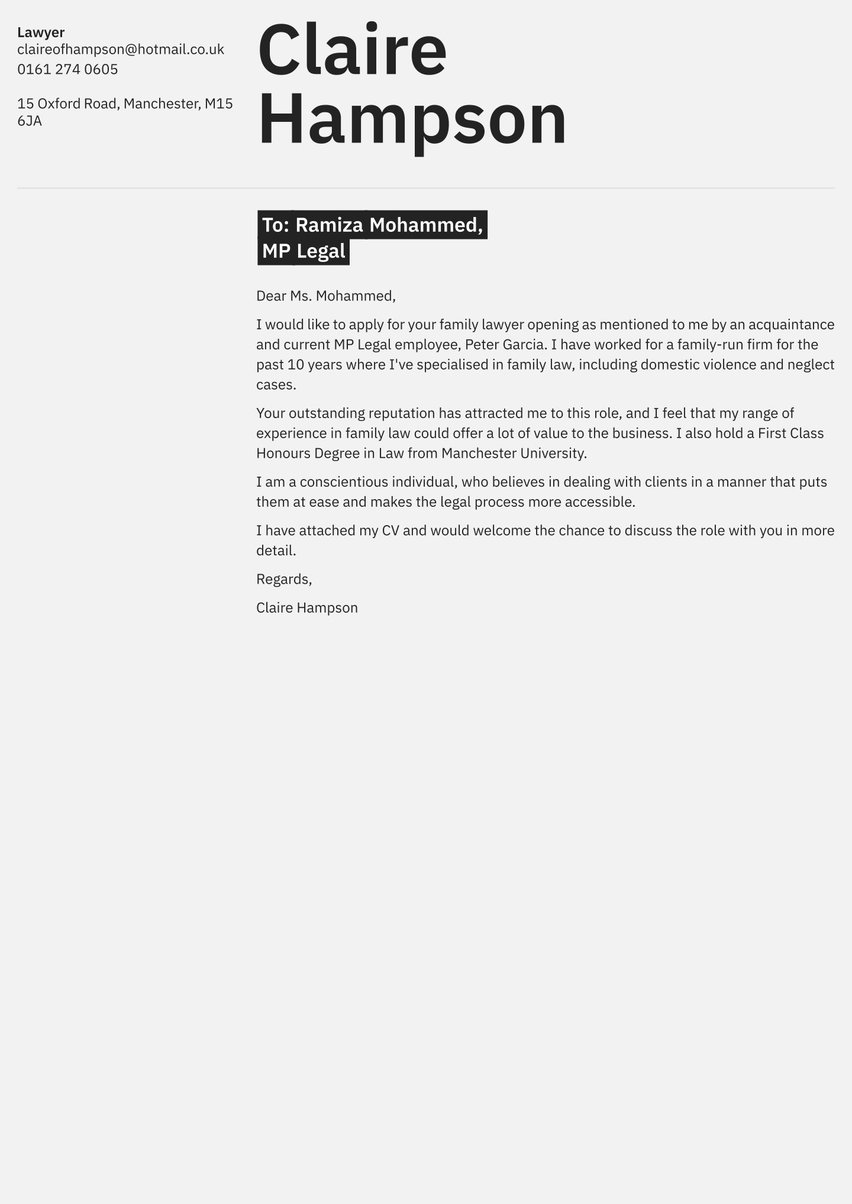If you’re preparing for a big promotion or have your eye on another position with your current employer, you’ll need a great internal cover letter that clearly lays out the impact you’ve had on the company. Even though the company is already familiar with you, your internal cover letter still carries a great deal of importance when it comes to showing them that you’re a better choice than other internal or external candidates.
But how might it differ from a cover letter that is written for an external position? The hiring manager should already be familiar with your personality to a certain degree, and you will spend less time proving that you are a fit for the company culture, but there will certainly be a sales job to persuade people that you can move into a new niche. Writing about how you see your career developing within the company – and to the employer’s benefit – is a great way to kick off a change in direction.
Luckily, you’ve come to the right place. Resume.io is an expert resource for professionals across industries and at all stages of their career. In this cover letter guide, along with the corresponding internal cover letter example, we’ll cover the following topics to help you write the best cover letter possible:
- Writing an internal position cover letter to convey the depth of your experience.
- Which paragraphs to include in an internal position cover letter.
- Ensuring that the format and structure is optimized.
- Mistakes to avoid when writing your internal position cover letter.
Since candidates make internal moves at virtually every company and in every field, make sure to check out our ever-growing collection of occupation-specific cover letter examples to get specific insights on writing a great cover letter for your industry.
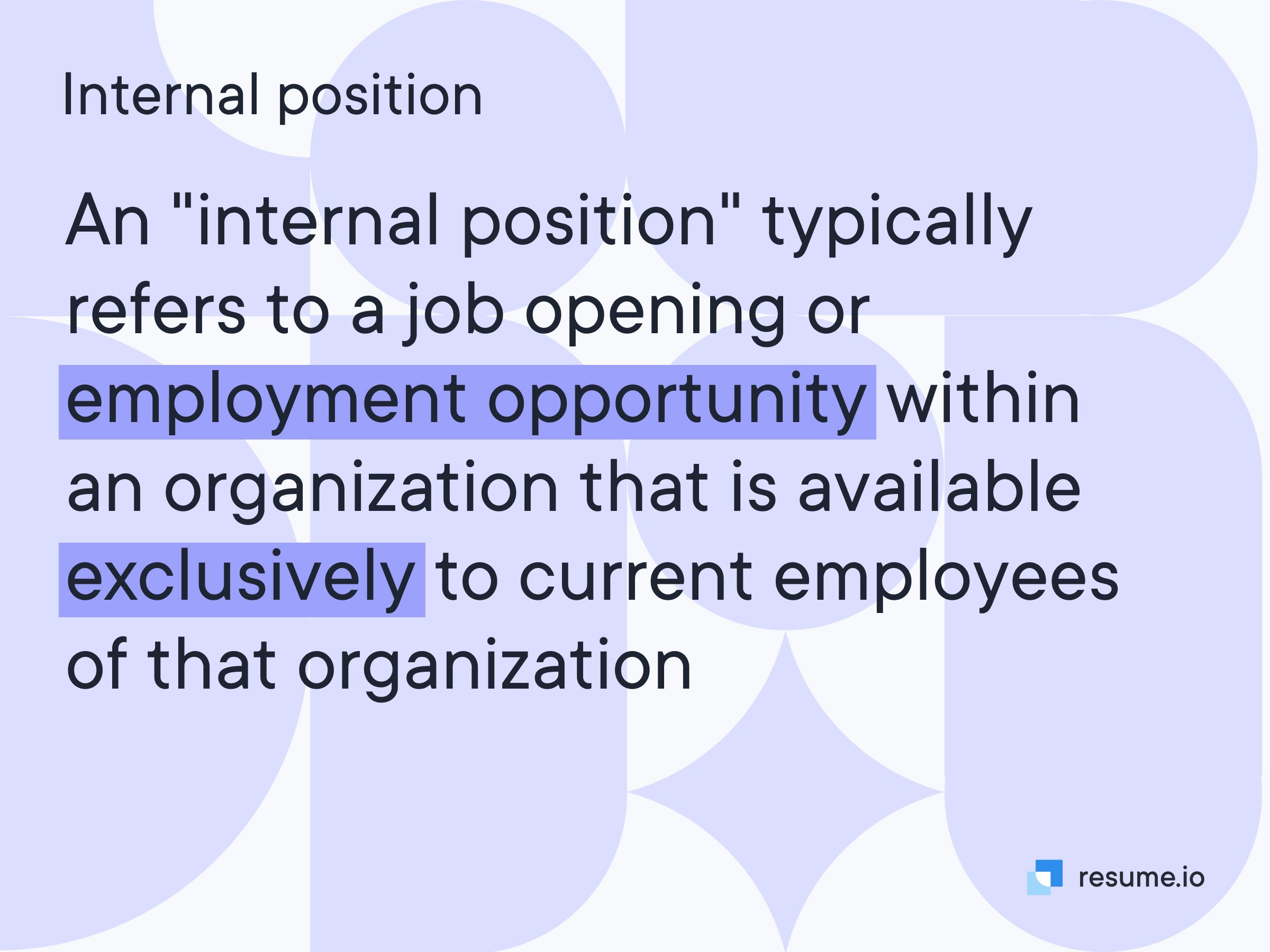
Best format for an internal position cover letter
Internal position cover letters should not be structured any differently to normal cover letters. Although your cover letter is more free form than your CV, there are still clear guidelines to follow to ensure that you’ve included all the necessary information in the format that your manager is expecting to see. The format of an internal cover letter should contain the following elements:
- The cover letter header
- The greeting/salutation
- The cover letter intro
- The middle paragraphs (body of the letter)
- The ending paragraph of your cover letter (conclusion and call-to-action)
Before you sit down to write the cover letter, make sure that you have read the job description carefully. When you are an internal applicant, it is easy to assume that you know what the job entails, but you never quite understand the vision of the hiring manager. Maybe there are changes planned for the role? Reading the job description is essential to tailor the internal cover letter tightly for the role in question. Don’t assume that you have the role in the bag – a casually written cover letter can give the impression that you expect to win the role or that you lack motivation.
While the internal cover letter should set out your arguments for the role like any other letter, there are some differences from an external cover letter. While you don’t need to explore your culture fit or motivations in such detail, making it clear that you are ready to go in these matters is important. You will be assured of an interview where you can explore this in more detail, but it doesn’t hurt to remind those making the hiring decisions.
When you have a few stories in the front of your mind, it comes to the mechanics of the cover letter. Our comprehensive cover letter guide goes into the details. What font should you choose? How much white space do you need? Writing too little may make it seem that you feel the hiring decision is a done deal – it likely won’t be.
When you have done your preparation, it is time to get writing. This internal cover letter example can serve as the starting point for your own application:
Dear Rebecca Wallace,
I am writing to formally express my interest in the recently advertised internal position within the finance department at Reece Corporation Ltd. Over the past three years as a Junior Finance Associate in our Liverpool branch, I have been diligently working to not only meet but exceed the expectations, showcasing my deep commitment to our company’s mission and values. I believe this new role would be the perfect opportunity for me to leverage the insights and skills I have acquired thus far, to further contribute to our company’s success.
During my tenure at Reece Corporation Ltd., I have actively engaged in various cross-departmental projects, illustrating my capacity to work collaboratively and to foster synergies among diverse teams. My educational background, holding a Bachelor’s degree in Accounting and Finance from the University of Liverpool, has provided a solid foundation to grow and excel in my current role, and it would undoubtedly be a valuable asset in the new position as well.
I am particularly interested in this role due to its emphasis on strategic financial planning, an area I have become increasingly passionate about. Over the last year, I have taken the initiative to undergo further training in data analytics and forecasting through online courses, enhancing my skill set and preparing me to take on the more comprehensive responsibilities that this role entails. I am eager to apply these newly acquired skills to drive forward the objectives of our finance department, and in turn, our company as a whole.
What excites me most about this opportunity is the potential to work closely with a team I hold in high regard and to play a part in the strategic initiatives that shape our company's future. I am confident that my intimate understanding of our company’s inner workings and the broader industry landscape, coupled with my unwavering dedication to our shared goals, positions me as a strong candidate for this role.
Thank you for considering my application. I am eager to potentially step into this new capacity, where I can continue to contribute meaningfully to Reece Corporation Ltd., leveraging my deep-seated knowledge of our company's structure and operations to foster continued growth and success.
I look forward to the possibility of discussing how my experience and ongoing commitment to our company can serve to fulfil the requirements and expectations of this exciting new role.
Yours sincerely,
Thomas Green
Cover letter header
The cover letter header is the section found right at the top of the page that contains your name and contact information. The header serves an essential purpose in helping the employer identify your document and keeping your contact information handy in case they’d like to continue the conversation. This is also the place to add a touch of attractive formatting to ensure your application stands out and aligns with the company.
Even though you’re an internal applicant, you shouldn’t assume the reader already knows how to get in touch with you. Your cover letter may pass through multiple levels of the business and should always contain your current job title, work email, and phone number. You can also add the URL of your LinkedIn profile if appropriate for your industry.
For even more insight into writing a great cover letter, check out these related examples:
Cover letter greeting
The greeting on an internal cover letter should not prove to be a stumbling block. Address the letter to your future boss or to HR – as dictated in the job description. Make sure that you follow the formality of “Dear Mr/Mrs/Ms Surname” rather than calling the person by their first name. It doesn’t matter how well you know them, you are likely one of several candidates, so follow the conventions of the crowd. There can be no suggestions of favoritism.
Cover letter introduction
The introduction of your cover letter is the first one or two sentences meant to grab the reader’s attention and encourage them to read the rest of your application. As an internal candidate, you may assume that the hiring manager already knows who you are, but since the cover letter is a formal document, you should still clearly explain your current role and the one you’re applying for. Don’t assume the hiring manager will read your whole cover letter just because you already work at the company. Your introduction should still be engaging and speak to your strengths and accomplishments. See this in action in our adaptable cover letter example introduction below.
Dear Rebecca Wallace,
I am writing to formally express my interest in the recently advertised internal position within the finance department at Reece Corporation Ltd. Over the past three years as a Junior Finance Associate in our Liverpool branch, I have been diligently working to not only meet but exceed the expectations, showcasing my deep commitment to our company’s mission and values. I believe this new role would be the perfect opportunity for me to leverage the insights and skills I have acquired thus far, to further contribute to our company’s success.
Cover letter middle part (body)
The middle part of the internal applicant cover letter is where you make use of your inside knowledge. Take your time to construct an argument for your candidacy that gets to the very heart of the challenges that will come. Only you might be aware of the obstacles, so you have the opportunity to show that you have already thought about how you will overcome them.
Do not be satisfied with a simple list of what you have accomplished during your time at the company. The stakeholders reading the letter will know this – you wouldn’t be in the running for the job otherwise. Go to town on why your unique experience will make you the only choice. Share some personality and show why this personality has helped you to get things done – always try to link behaviors with results.
One great way to do this is by using the STAR Method. Highlight a Situation and a Task you faced at work. Then describe your Action and the positive Result it caused. Aim to include two or three of these short anecdotes to help the hiring manager truly understand the value you bring. Get started with our internal cover letter example below.
During my tenure at Reece Corporation Ltd., I have actively engaged in various cross-departmental projects, illustrating my capacity to work collaboratively and to foster synergies among diverse teams. My educational background, holding a Bachelor’s degree in Accounting and Finance from the University of Liverpool, has provided a solid foundation to grow and excel in my current role, and it would undoubtedly be a valuable asset in the new position as well.
I am particularly interested in this role due to its emphasis on strategic financial planning, an area I have become increasingly passionate about. Over the last year, I have taken the initiative to undergo further training in data analytics and forecasting through online courses, enhancing my skill set and preparing me to take on the more comprehensive responsibilities that this role entails. I am eager to apply these newly acquired skills to drive forward the objectives of our finance department, and in turn, our company as a whole.
What excites me most about this opportunity is the potential to work closely with a team I hold in high regard and to play a part in the strategic initiatives that shape our company's future. I am confident that my intimate understanding of our company’s inner workings and the broader industry landscape, coupled with my unwavering dedication to our shared goals, positions me as a strong candidate for this role.
Thank you for considering my application. I am eager to potentially step into this new capacity, where I can continue to contribute meaningfully to Reece Corporation Ltd., leveraging my deep-seated knowledge of our company's structure and operations to foster continued growth and success.
How to close an internal position cover letter (conclusion and sign-off)
The conclusion of your internal cover letter should drive home the overall message of your application and invite the hiring manager to continue the conversation. Do this by including a call to action. This sentence reaffirms your interest and enthusiasm for the position and invites the hiring manager to get in touch with you to carry on the conversation. Then, sign off respectfully with your full name. Again, the hiring manager may know you, but it’s important to retain a certain level of professionalism on your cover letter as this is an official job search document. See our adaptable internal cover letter sample below for more guidance.
I look forward to the possibility of discussing how my experience and ongoing commitment to our company can serve to fulfil the requirements and expectations of this exciting new role.
Yours sincerely,
Thomas Green
Writing psychology: how to leverage your unique insight on your internal cover letter
If you’re an internal candidate you might think that winning that promotion or new position will be a breeze – after all, don’t you have the inside knowledge and rapport that external candidates lack?
The truth is, only about 20 percent of new openings are filled internally. External candidates bring fresh perspectives and a diverse range of experience that hiring managers are looking for. So how can you compete?
Your internal cover letter is the key to expressing your unique vision and your ability to make a difference within the organization based on your prior experience. Even the brightest external candidates will still need several weeks of training and adjustment. As an internal candidate, you’re poised to make an impact right away. Show how you’ve been on the ball, paying attention to the company’s needs and goals, and why you’re the right person to solve them. By creating a cover letter that clearly lays out why you’re the easiest, most efficient choice for the company, you’ll be on your way to landing that internal position.
Basic mistakes in an internal position application letter (and how to avoid them)
In addition to the potential mistakes detailed above, someone applying for an internal position should not avoid the errors that anyone can make when applying to a job. Take a moment to pause and think about these errors before you send off the cover letter:
- Grammar errors Spelling and grammar errors could be another indication that you are not taking the job application so seriously. If the hiring manager feels any sense of entitlement, they will run a mile. Do your best in every possible way – that includes checking the spelling with software such as Garmmarly.
- Maintain a formal tone. You cannot afford to be too conversational with the tone of the internal position cover letter. Be as formal as the other candidates. This might seem a little strange if the person interviewing you knows you well, but they will understand that you simply wish to respect the process.
- Only tell relevant stories. The fact that you know what the role entails puts a certain amount of pressure on you to tell only the best career stories. Anything irrelevant will hint that you don’t have what it takes.
Key takeaways
- Focus on your value add as an internal applicant – how will this give you the decisive advantage?
- Start the stories that you wish to tell during an interview. Don’t hesitate to include successes from previous employers if they are relevant and don’t assume that the hiring manager will know a lot about your past. Let them get to know you.
- Make sure that you sprinkle in some motivation – why are you going for this job rather than looking for another role elsewhere? What do you love about the company?
- Choose an attractive cover letter template. Check out our cover letter templates.

